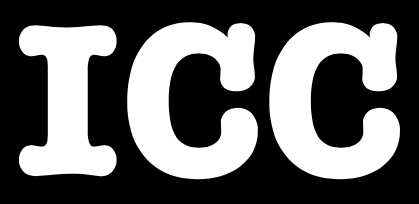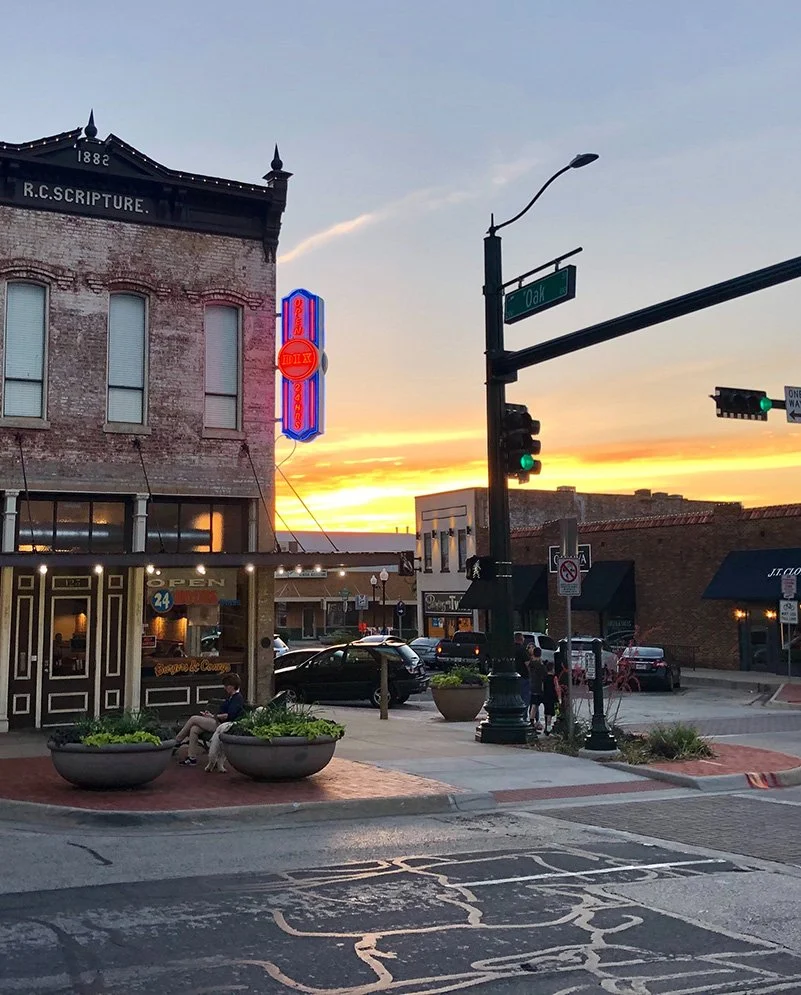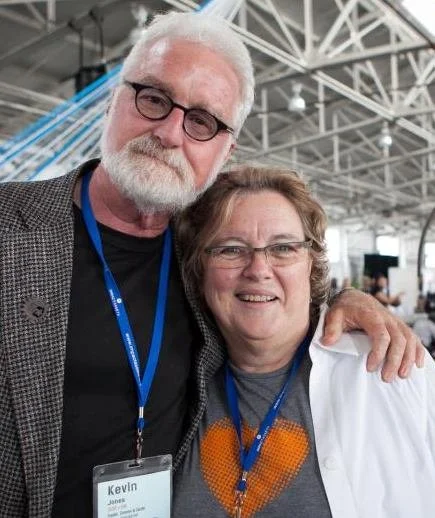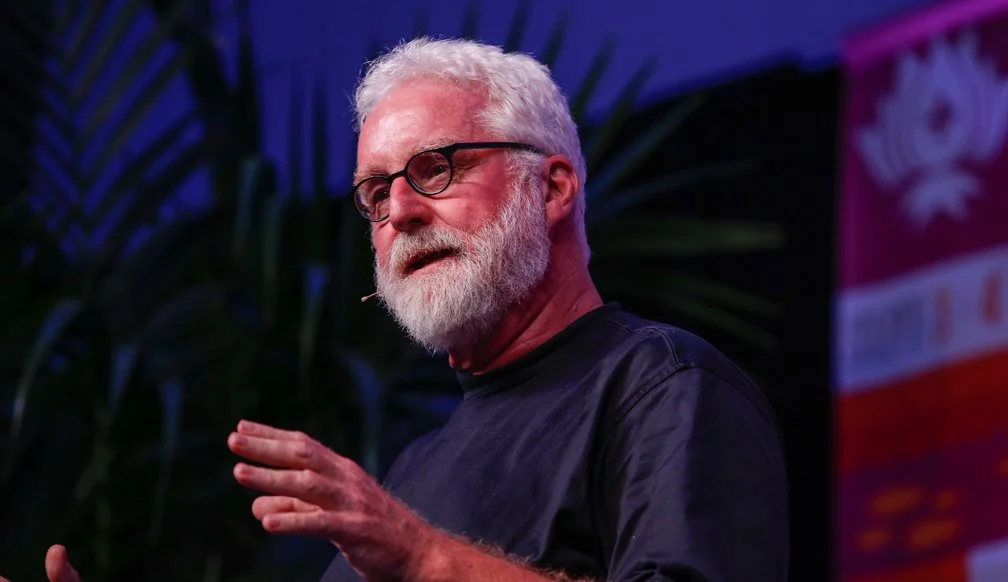Meet Kevin Jones
Kevin Jones began his career as a weekly journalist in the poorest county in Mississippi. Along with his wife and business partner, Rosa Lee Harden, he went on to run a number of successful publications and trade journals in the state. In the mid-90s, Kevin launched the first web-based legislative monitoring and legal opinion service in the country, the same year the Netscape browser came out. Having a profitable internet-based business in the year the web launched enabled him to understand the business potential of the web, which he leveraged to create the first business-to-business internet conferences. In 2008, Kevin partnered with Tim Freundlich to create one of the first impact investing funds. While the fund was successful, Kevin and his partners quickly realized that the ecosystem needed to change for impact investing to succeed. This led to the creation of SOCAP, which grew over ten years from 600 to 3000 participants and is credited with changing the narrative on impact investing. Now, Kevin and Rosa Lee have launched Faith Finance to let Christians get their money and their beliefs in line in order to do the hard, catalytic, patient work the world needs and the larger, umbrella brand, Neighborhood Economics. to pull together investors, practitioners, and planners to address economic justice in local communities.
My fellowship is with the folks who are
systematically excluded, who are told that
‘people like you will not ever get to the head table.’
That’s what caused me to do this work.
-
MISSION
Connecting capital to neighborhoods that don’t normally get it.
-
VISION
Seeing harmful economic systems crumble, enabling wealth generating-futures for everyone.
-
SEEKING
Partners fueled by the urgency of the interlinked crises we face (such as climate change, social unrest, and racial disparities) and motivated by a common moral hunger.
Kevin’s Story
Kevin believes that many entrepreneurs who stick with it in the social enterprise space have some generational thing they’re wanting to fix, and he is no exception. He grew up in Mississippi and learned that there was a disparity between the haves and the have-nots at a young age.
His family gathered at his grandmother’s house for Thanksgiving each year, and when Kevin was 12 years old, he remembered his father – a blue collar worker who earned his GED at 43 and wore coveralls – was asked to come early to fix the washing machine.
“All my uncles were powerful, affluent white guys who wore shirts and ties,” Kevin recalls. “And my father asked my grandmother, ‘Why can’t I ever cut the [Thanksgiving] turkey?’” The response made it clear that his father was seen as “less than” his brothers because of his occupation and social class.
Kevin held onto the idea that he needed to be at the head table, so to speak, to restore his family’s honor for years – until he sold his first business. It was then that he realized that he wanted to work to change the system so that people who are systematically told they don’t have a place are able to find their place. Kevin credits his grandsons as his main inspiration to continue doing the hard work of systemic change and building for generations to come.
We’re breaking away from the traditional path of
investing solely for a return by going even
further and creating a space for people to think
like philanthropists and act like investors,
deploying money for the common good.
Q & A
We recently sat down with Kevin Jones to find out more about his passions, his calling, and generally dive in deeper to get to know him.
1
ICC has grown to over 250 practitioners and allies, all deploying a range of debt, equity, and real estate instruments to support BIPOC entrepreneurs and catalyze community wealth.
How did you discover ICC, and what drew you to become a partner?
I was one of the original folks involved because I was doing this work. We are in the phase of uncoordinated innovation where the people who have solutions don’t know the people who are solving a part of that problem. You need to network in order to get things done, and collaboration helps projects go further. We have to build the common infrastructure behind [the] isolated innovations, and we’re doing that. That arose out of ICC.
2
What are some of the biggest challenges you’ve faced in your work over the last few years?
Lorem Ipsum is simply dummy text of the printing and typesetting industry. Lorem Ipsum has been the industry's standard dummy text ever since the 1500s, when an unknown printer took a galley of type and scrambled it to make a type specimen book. It has survived not only five centuries, but also the leap into electronic typesetting, remaining essentially unchanged.
2
Developing alternative business models to the startup status quo has become a central moral challenge of our time. These alternatives want to balance profit and purpose and put a premium on sharing power and resources.
Why is getting investments in this alternative model crucial for those who seek it?
I think the problem is fragile white people, who don’t want to acknowledge their role in injustice. I have found that, using the DoughnutEconomics.org model, if you get environmentally anxious white people to care about a place — a local watershed, say — then it opens up ways for them to care about everyone in a place. Talking about our NeighborhoodEconomics.org last week with a white economic developer, he said our asking if a just economy was possible would “trigger” a lot of people. So I shifted to talking about an economy where everyone could thrive, and he calmed down and may actually attend [the conference].
3
How do we shift the narrative about the role of capital in BIPOC communities and reframe the perceptions of the risk involved?
The system isn’t built for people of color. It was built to keep down people of color. But you can subvert that in a lot of different ways, and that’s why we need innovators and investors. You can use innovation to correct injustice, and that’s what we’re trying to do.
The book Caste by Isabel Wilkerson talks about how whiteness was created as a way to keep folks down. It’s a good introduction into how risk is really a white problem. We have to be able to look at folks who are different from us and not see them as risky.
Specifically, for people of faith, they can realize the “other” is their brother. I’m finding that there is a change in the white non-evangelical, mainstream church where people realize that systemic injustice is a problem that affects all of us. That’s a huge change from the past, when white Christian leaders failed to stand up against the “White Power” structure. Now, we’re seeing churches give to philanthropic loan funds, and that investment makes their local communities better.
People are starting to realize that racism and keeping Black folks down makes everybody poorer. There is common good if you let everybody into the game, and the more people who acknowledge this and act on it, the further we’re going to go in terms of changing the misperception of risk.
4
What are the top three pieces of advice you would give to BIPOC entrepreneurs, who are dedicated to both purpose and profit, as they are starting or scaling their business?
Make sure you can handle growth capital. You’re going to need a couple years of runway to grow to become a job creator, and it will take time to be able to handle debt. So don’t just be purely a service provider, find a product that can be leveraged.
Find allies. There are folks who care about you and who want to help.
Believe it’s possible. You have to get the bad stories out of your head that have been delivered to you. Those stories are not your reality. My own father had those negative voices in his head telling him, “All you’re good for is fixing the washing machine.” But it’s not true. Find people who want you to succeed and listen to them.
5
What is the call to action for investors who seek to promote social justice through investment solutions?
First of all, you’re not an impact investor unless you pay for impact. There is a cost to doing good. You don’t uproot systemic injustice at market rate. There’s a history you have to deal with, there are rules that have kept BIPOC folks down, there are all the different stories that have been promulgated throughout history. It’s going to take time and money. Be patient, be flexible, and trust BIPOC entrepreneurs. Give them unrestricted operating income and get out of their way. Evaluate what burdens to success are in the way, and remove them.
Kevin Jones is
currently looking for people who
meet the following criteria to
work together
JUST: We create products and processes that uphold “nothing about us without us.”
RESPONSIVE: We listen to and build with multiple, diverse perspectives.
RADICAL: We commit systemic change by injecting restorative justice into Finance.
COOPERATIVE: We co-own and co-build this work through participatory processes.
HOLISTIC: We value the uncounted resources of lived experience and whole people.
EMERGENT: We listen and learn, adapt and modify, and value “done” over “perfect.
ABOUT US
Team members: 8
Number of transactions: 76,505
Cities Impacted: 3
Lawyers and law students trained: 5+
Total program partners: 10
Fundraising goal for Jackson, MS in 2023:
$50,000





